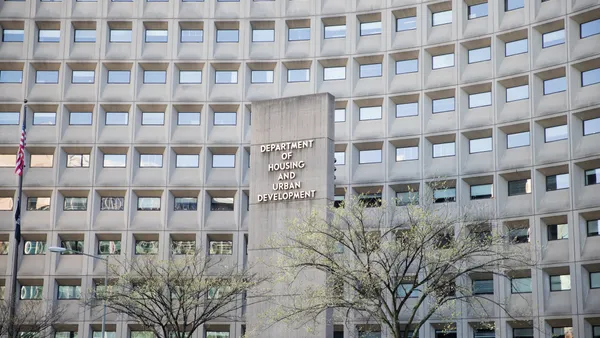Dive Brief:
- Honolulu Mayor Kirk Caldwell this week signed a directive ordering all city agencies to take action to prevent sea level rise. The directive calls for agencies to treat climate change as an "urgent matter" and to develop land use policies, building codes and hazard mitigation actions to prevent the worst impacts of rising seas.
- The action follows the release of a report from the Honolulu Climate Change Commission, led by the University of Hawaii, which said that Oahu is the most vulnerable Hawaiian island and could see nearly 4,000 structures and 18 miles of coastal road be destroyed if oceans rose three feet by mid-century.
- The directive also calls for agencies to use the findings of the report in all planning and capital improvement decisions, and for proposed revisions to shoreline rules and regulations to incorporate sea level rise.
Dive Insight:
Sea level rise threatens infrastructure around the country — a study last month from the Union of Concerned Scientists said that in the contiguous United States alone, rising seas could put 311,000 homes at risk of chronic flooding in the next 30 years. The number of affected homes rose to 2.4 million by the end of the century, with Florida, New York and New Jersey taking the highest share of the damage.
The report from the Hawaii climate commission was equally dire, warning that 9,400 acres of land on Oahu — more than half of it zoned for urban use — was under the exposure area if sea levels rose by 3.2 feet by mid-century. Honolulu Chief Resilience Officer Josh Stanbro said at a press conference that $12.9 billion worth of property would be at risk at those levels.
"The sea is rising, we see it all around our island, everyday everyone in this room, when you go to the beach everyone sees the erosion," Caldwell said, according to KHON. "If you take no action and we live with the consequences, then what happens to Waikiki? … If we don't take action now we'll have worse consequences later."
Still, combating and adapting to rising seas has been a challenge for many cities, given the high costs and the desirability of real estate along the coasts. The Washington Post covered the debate some California towns are having between shoring up beaches to protect real estate or keeping them open to attract tourists. Even on Oahu, leaders are debating a controversial rail line planned near the coast, with some officials calling for it to be moved farther inland, to avoid stations and tracks being flooded.
The directive also comes the same week that a federal judge dismissed a lawsuit from New York City against five oil companies, seeking damages for the cost of adapting to climate change. Several lawsuits have been filed in a similar vein seeking money to adapt infrastructure to impacts like climate change, but the judge ruled that Congress and the executive branch — not courts — were the right venues to have a national policy debate on climate change. That won’t stop city-level action like Honolulu’s, especially as the threat of damage gets closer.









